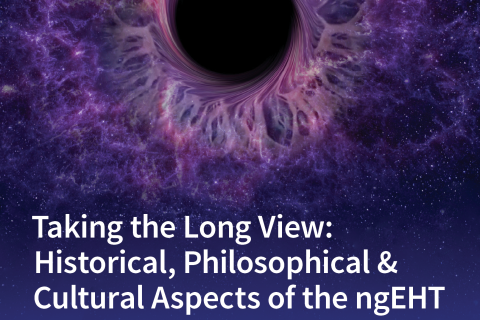New research group on philosophy of astronomy & cosmology
Utrecht history & philosophy of science is expanding
Utrecht has a long and rich tradition in history and philosophy of science. Its story continues with a brand new research group on the philosophy of astronomy & cosmology (UPAC), consisting of philosophers of physics as well as physicists, and being spearheaded by dr. Niels Martens. UPAC is part of the Freudenthal Institute (Science Faculty, Mathematics Department) and associated with the Descartes Centre for the History and Philosophy of the Sciences and the Humanities. The philosophy of modern cosmology is a relatively novel field, initiated in the UK and US a decade ago and gaining ground mainly in North America. The philosophy of modern astrophysics is even younger, its first textbook appearing only earlier this year. Whereas those initiatives focus mainly on the epistemological peculiarities of—that is, the nature and status of knowledge in the unique context of—astronomy and cosmology, the UPAC group aims to make the EU a center of philosophy of astronomy and cosmology that focuses on complementary perspectives: metaphysical, semantic and social.
Spacetime and Matter: Outdated Categories

The group's first core research area is that of the COSMO-MASTER project —"Philosophy of COSMOlogy: Matter And SpaceTime ERadicated"—which is generously funded by the European Research Council via an ERC Starting Grant (101076402) with a value of almost 1.5 million euro. The two most basic categories in our universe are that of space(time) and matter. The first is usually thought of as the container, the latter as that what is contained. However, this orthodox spacetime–matter dichotomy does not seem to apply anymore in the context of modern astronomy, astrophysics and cosmology, where the COSMO-MASTER project explores the far-reaching ramifications of this conceptual breakdown for both physics and philosophy.
Next Generation Event Horizon Telescope Collaboration (ngEHT)

The group's second core research area concerns contributing to the ngEHT collaboration. The ngEHT aims to build ~10 new telescopes around the world, thereby expanding the EHT array, in order to create a virtual, Earth-sized telescope to make videos of black holes. UPAC plays a leading role in one of the ngEHT's working groups: History Philosophy Culture (HPC). It focuses on the social organisation of such a large (astro)physics collaboration: which governance structure is optimal, how to approach dissenting opinions, how to write a paper with hundreds of authors, and how does all of the above affect the eventual knowledge produced?
The ngEHT has placed a major institutional bet on redrawing the lines that have confined academics to separate departments, professional gatherings and research funding panels in response to the challenges faced by modern science.
Weekly Hybrid Colloquium
The group will be organising four workshops (black holes, dark energy, inflation & spin-2 gravity), as well as two major international conferences. In addition, from October 2023 onwards, the weekly UPAC colloquium will bring together physicists, astronomers and philosophers (both offline and online) according to a rotating format: research presentations, reading group sessions, and work-in-progress sessions.
Utrecht History and Philosophy of Science

This is not the only recent expansion of Utrecht History and Philosophy of Science. Another ERC project, "BOHR21", has just recruited a new team to reanalyse the legacy of physicist Niels Bohr; a new Vidi Project, "Microbiome Research and Race in the ‘Local South’", will help us to decide when it is useful to use racial categories in human microbiome research and when it causes harm; and Prof. Federica Russo has just been appointed as professor of ‘Philosophy and Ethics of Techno-Science’.



